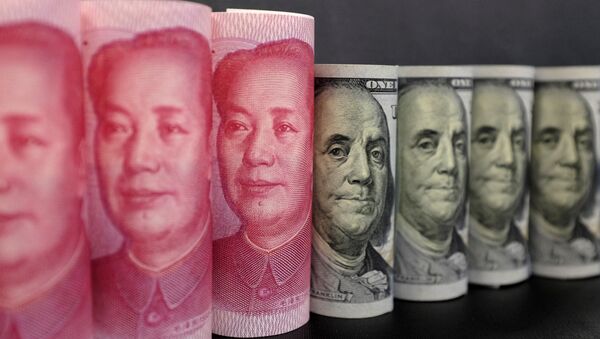The US elections' outcome will decide a number of economic policy directions for China. Especially so for the future course of the Chinese currency and trade policy. A Joe Biden win is expected to usher in the practice of compliance to World Trade Organisation (WTO) norms on trade deliberations, while Trump returning to power may see continued trade tensions with China.
As votes are being counted, analysts in India believe that if Biden comes to power, there is likely to be a more “realistic” rating of the Chinese currency.
Talking to Sputnik, economic journalist Deepak Joshi said, “If Biden comes to power in the US, both US and China are expected to arrive at a reasonable understanding on multiple issues, including bilateral trade. In that case one can expect a more stability on the currency front, and a realistic rating of the Chinese currency.”
Joshi, however, maintained that if Trump comes to power in the US, trade deliberations with China and the currency policy by China may remain “unpredictable”.
Professor Biswajit Dhar from India's premier Jawaharlal Nehru University (JNU) also agrees that a Biden rule will ensure compliance with the international trade norms.
“Biden is expected to ensure adherence to the rulebook. Trade negotiations under the Democratic candidate are likely to go as per the WTO norms, thereby ensuring a more linearity in deliberations and dispute redressal,” Dhar told Sputnik. The same is not true for Trump, Dhar added, saying, “Things will be more ad hoc under Donald Trump.”
On 5 August last year, the People's Bank of China (PBOC) set the rate of the Chinese Yuan below 7 per dollar in a surprise move thereby devaluing the currency to this level for the first time in more than 10 years. This, in fact was China’s retaliation to tariffs imposed by the US on Chinese imports.
The Trump administration had imposed a whopping 10 per cent tariff on Chinese imports worth $300 billion. It was then that the US labelled China a currency manipulator.
Before that, in August 2015, the PBOC had implemented three consecutive devaluations of the Chinese currency, bringing it down by at least 3 per cent against dollar.




